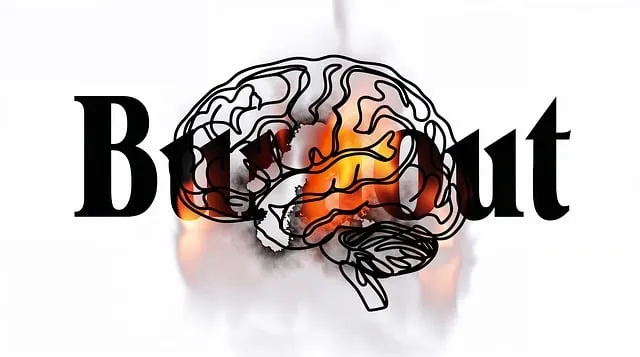Kaiser Permanente mental health number Longmont prioritizes risk assessment and harm minimization through holistic approaches. They consider psychological, social, and environmental factors to predict and mitigate risks, utilizing evidence-based practices like Inner Strength Development and Stress Management Workshops. Early intervention, tailored support systems, and cultural competency training empower both care providers and individuals, fostering a supportive work culture and enhancing well-being. By identifying demographic-specific risks and employing multi-faceted strategies, they aim to create safe spaces and promote mental health resilience among employees. Continuous evaluation ensures their approach remains effective and relevant in mitigating emerging risks.
Risk assessment and harm minimization planning are vital components in ensuring patient safety within mental healthcare. This comprehensive guide explores essential strategies, drawing insights from Kaiser Permanente Longmont’s innovative practices. We delve into understanding risk assessment, identifying vulnerable populations, developing effective mitigation plans, and the continuous improvement of safety protocols. By examining these key aspects, mental health professionals can enhance care delivery and create a more secure environment for patients, particularly in the context of Kaiser Permanente’s renowned mental health services in Longmont.
- Understanding Risk Assessment in Mental Health Care
- Kaiser Permanente Longmont: A Model for Harm Minimization
- Identifying Potential Risks and Vulnerable Populations
- Developing Comprehensive Mitigation Strategies
- Continuous Evaluation and Improvement of Safety Plans
Understanding Risk Assessment in Mental Health Care

Risk assessment is a fundamental aspect of mental health care, crucial for identifying potential hazards and implementing harm minimization strategies. It involves a comprehensive evaluation of an individual’s psychological, social, and environmental factors to predict and mitigate risks of adverse outcomes. At Kaiser Permanente Mental Health Number Longmont, we take a holistic approach, considering the unique needs and strengths of each patient.
Our experts utilize evidence-based practices, such as those promoted by organizations like the Inner Strength Development initiative, to foster Emotional Healing Processes. By participating in Stress Management Workshops offered within our organization, patients gain valuable tools to navigate challenges and build resilience. We believe that understanding risk assessment empowers both care providers and individuals to proactively address mental health concerns, ultimately enhancing overall well-being.
Kaiser Permanente Longmont: A Model for Harm Minimization

Kaiser Permanente Longmont stands as a shining example of harm minimization planning in action, particularly within the context of mental health services. This healthcare organization has pioneered innovative strategies to ensure patient safety and well-being, focusing on both physical and psychological aspects of care. By integrating Mind Over Matter principles, Kaiser Permanente Longmont offers comprehensive programs aimed at reducing risks associated with mental health conditions. Their approach prioritizes early intervention and includes tailored support systems designed to prevent burnout among healthcare providers, a significant aspect often overlooked but crucial for long-term patient care quality.
The facility’s success lies in its holistic understanding of harm minimization, which transcends traditional medical practices. Through Healthcare Provider Cultural Competency Training, staff members are equipped with the knowledge and skills necessary to address diverse patient needs effectively. This training fosters an inclusive environment, ensuring that every individual receives sensitive and culturally responsive care. By combining cutting-edge mental health services with a supportive work culture, Kaiser Permanente Longmont exemplify best practices in harm minimization planning, setting a benchmark for other healthcare institutions striving to enhance patient outcomes and provider satisfaction.
Identifying Potential Risks and Vulnerable Populations

Identifying potential risks is a critical step in risk assessment and harm minimization planning. This process involves a thorough examination of various factors that could lead to adverse outcomes, particularly for vulnerable populations. At Kaiser Permanente mental health number Longmont, for instance, professionals recognize that stress, anxiety, and burnout are prevalent among individuals navigating complex life circumstances. These risks may manifest differently across diverse demographics, underscoring the importance of tailored interventions.
Vulnerable populations, such as those facing economic hardships or lacking access to quality healthcare, often require specialized support. By employing evidence-based practices like Social Skills Training and promoting Emotional Healing Processes, organizations can proactively address these risks. Through comprehensive risk assessment, Kaiser Permanente mental health centers aim to create safe spaces, implement effective harm minimization strategies, and ultimately foster resilience among their clientele.
Developing Comprehensive Mitigation Strategies

In developing comprehensive mitigation strategies for mental health issues within organizations like Kaiser Permanente Longmont, a multifaceted approach is essential. This involves integrating various initiatives to create a robust safety net. One key strategy is promoting burnout prevention through self-awareness exercises tailored to the unique demands of healthcare workers. These exercises empower employees with tools to manage stress and maintain well-being, ultimately reducing the risk of mental health deterioration.
Additionally, establishing effective communication strategies serves as a cornerstone in harm minimization planning. Open channels of dialogue encourage employees to discuss challenges, seek support, and share insights anonymously if needed. Such practices foster a culture where mental health concerns are normalized, accessible, and promptly addressed, mirroring best practices recognized in the industry.
Continuous Evaluation and Improvement of Safety Plans

Effective risk assessment and harm minimization planning require an ongoing commitment to continuous evaluation and improvement. Just as the Kaiser Permanente mental health number Longmont highlights the importance of proactive healthcare, safety plans should be dynamic entities that adapt to changing circumstances and emerging risks. Regularly reviewing and updating these strategies ensures they remain relevant and effective in mitigating potential harms.
By implementing a culture of continuous improvement, organizations can foster an environment where self-care routine development for better mental health is prioritized, empathy building strategies are employed, and inner strength development is encouraged. This proactive approach not only strengthens individual resilience but also contributes to a safer and more supportive overall ecosystem.
Risk assessment and harm minimization planning are essential components of providing safe, effective mental health care. By understanding risk factors, identifying vulnerable populations, and implementing comprehensive mitigation strategies, healthcare organizations like Kaiser Permanente Longmont can significantly enhance patient outcomes. Continuous evaluation and improvement of safety plans, based on best practices and evidence-based methodologies, ensure that services remain robust and responsive to evolving challenges in the field of mental health. The Kaiser Permanente Longmont approach serves as a model for other healthcare providers, demonstrating the importance of proactive harm minimization planning.






